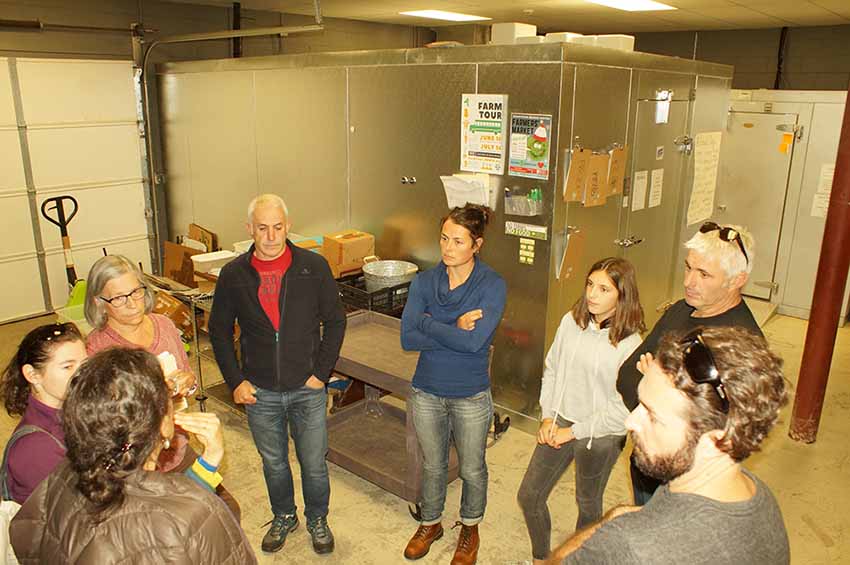Ainhize Monjolose, Lower Navarre. Thanks to the University of Georgia, a group of Basque farmers and a representative of the Euskal Herriko Laborantza Ganbara (EHLG), alternative agricultural chamber in Iparralde, visited various farms in the Appalachian Mountains in mid-October. The relationship began some 10 years ago with a young researcher, Meredith Wecsh-Devine who resided for a year and a half in Altzürükü (Zuberoa) to complete her doctoral thesis on the relationship between cultivation and the environment in Zuberoa, especially in relation to the Natura 2000 issue.
Last May, other researchers in Anthropology and Geography, from the same University visited the farms and operations in Altzürükü for a week to gather more information and documentation.
Therefore, this October it was the Basque farmers turn along with their representatives on this side of the ocean who went to the US, to the Appalachians, in order to experience it in situ and exchange experiences and information on research topics like crop sustainability in the coming years.
The trip also provided the opportunity to also visit the Basque community in the US, more specifically the Basque Cultural Center and Euskal Etxea in San Francisco to explain what the EHLG is and to present the contributions of Iparralde in the area of sustainable agriculture with a presentation at the SFBCC on October 17th.
For the coordinator of the EHLG, Iker Elosegi, who was also on the trip, there is no doubt that the experience was “surprising and interesting, visiting two counties in the mountains that have very different histories….The first inhabitants of the Appalachians were the Cherokee who were banished and most of their former lands are now a small jungle where mountain tourism and agriculture coexist. On the other hand, by commenting on our experience, the Americans were surprised at the ability of farmers in Iparralde to unite and fight to launch the initiatives and tools they need.”
“May these exchanges can help researchers because agriculture faces huge challenges worldwide: how to feed everyone, including the poor; in the US they have a “Food Desert,” neighborhoods of extremely poor people who lack healthy food that respects the environment, coming from agriculture that does not substantially affect climate change. The challenge is there,” Elosegi summarized.
Euskal Herriko Laborantza Ganbara
Zuentzat 64220 Ainiza Monjolose
laborantza.ganbara@ehlgbai.org
05 59 37 18 82
-EHLGren Berripapera jasotzeko, hemen
-EHLG dirulaguntzeko, hemen






 Send to a friend
Send to a friend Add comment
Add comment








